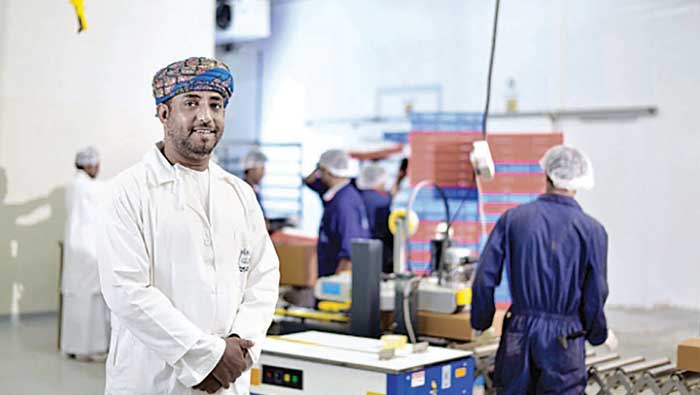
Muscat: Oman’s SME Development Fund has provided entrepreneurship training to over 30,000 students, as part of plans to encourage the Sultanate’s next generation to set up their own businesses.
The move is part of the government’s plans to focus on the setup of Small and Medium Enterprises (SMEs), as it looks to take the pressure off the public sector – currently the nation’s largest employer – and create new jobs that will spur the growth of the economy in the future.
The SMEF was formed in 2014, under the operations of the Omani Authority for Partnership of Development (OAFPD), and aims to create 7,500 entrepreneurs who will set up firms that will one day employ upwards of 50,000 people.
“We have conducted awareness workshops for over 30,000 students in 32 colleges and universities,” said Otbah Abdullah Al Harmali, Deputy Manager of Training for the SME Development Fund (SMEF).
“Four campus companies were created at four colleges, and we have trained 83 faculties under the Certified Entrepreneurship Educator Programme, in collaboration with Change School Babson, Harvard University, Mentoring Australia, Singapore National University, and the London Business School.”
Al Harmali also discussed the efforts of INMA, an Omani commercial training provider that, since its inception in 2006, has been offering technical training services to a host of companies, including Petroleum Development Oman (PDO), British Petroleum Oman and Oman Oil.
“In 2018, the INMA E-Club was created,” he said.
“The INMA Leadership Programme aims to develop leadership skills and knowledge in entrepreneurship culture in E-club leaders among over 200 students. We have had two Senior Entrepreneurship Programmes, and trained 384 senior professionals from the Ministry of Defence under the Senior Entrepreneur Module, which is aimed to train senior officers and staff to utilise their long years of experience in entrepreneurship.”
Al Harmali also spoke of the Ta’sis programme, which saw former employees of the oil and gas sector receive training to develop their own companies, operate them independently, and create new employment opportunities for people in the Sultanate. Ta’sis, which means ‘foundation’ in Arabic, was jointly run by the SME Development Fund, in collaboration with the Omani Society for Petroleum Services (OPAL).
“We also trained 30 people under 30 years old in Ta’sis, a programme which looks to provide skills to workers in the oil industry in order to increase their versatility, in collaboration with OPAL, to join forces to groom Omani talent in the oil and gas sector into entrepreneurs,” he said.
“We also set up 23 SME owners under the Leading Innovation Transformation (LIT) Programme to embed high impact transformational innovation across organisations.”
In addition, SMEs are expected to play a major role in Oman’s Tanfeedh plans for economic diversification, which aims to wean the nation away from traditional hydrocarbon and fossil fuel-based sources of income, such as oil and gas.
The targeted areas of expansion include mining and energy, transportation and logistics, agriculture and fisheries, manufacturing, and tourism.
“Tanfeedh, the national programme for enhancing economics with targeted sectors, has identified manufacturing, tourism, transport and logistics, mining, and fisheries as areas for expansion,” said Al Harmali. “The SME Development Fund has tailored a set of products specially designed to provide SMEs with flexible funding to meet their needs, with loan amounts of OMR 50,000 up to OMR 500,000, at a subsidised rate of interest, plus providing accounting support using software within those sectors.”